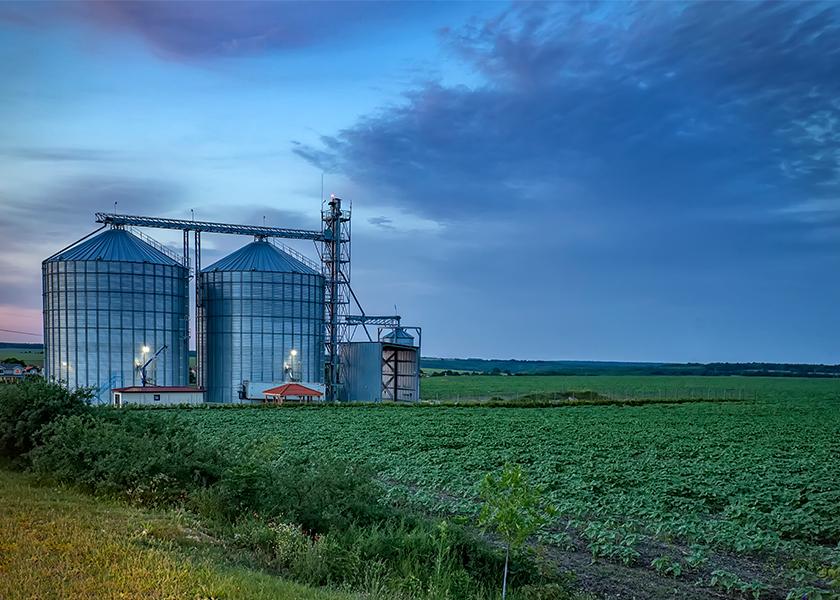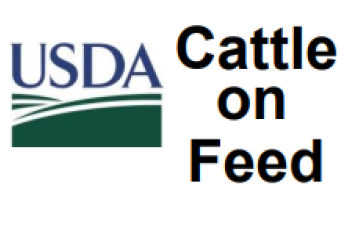Evening Report: Feb. 4, 2022

Click here to view weekly livestock slaughter/meat production charts.
Check our advice monitor on ProFarmer.com for updates to our marketing plan.
Your Pro Farmer newsletter is now available... South American crop estimates continue to shrink, especially the soybean crop. That pushed front-month soybeans above $15 – the highest level since June 2021 on the continuation chart. Falling production estimates also caused a scramble for soybeans among exporters and crushers in Brazil and likely keeps the window for U.S. old-crop exports open longer. On the geopolitical front, concerns about a Russian invasion of Ukraine have eased for now, though the markets are keeping a close watch on the situation. Our page 4 feature this week is results from our annual land survey. Not surprisingly, respondents expect land prices and cash rents to rise in 2022. We cover all of these items and much more in this week's newsletter, which you can access here.
Ukraine/Russia crisis: Diplomatic meetings scheduled for next week... Countries worldwide will meet in an attempt to ease tensions about a potential Russian invasion of Ukraine. On Friday, Russian President Vladimir Putin met with Chinese President Xi Jingping before the Olympics. China issued a statement supporting Russia. Sunday, Poland’s President Andrzej Duda is scheduled to meet with Xi to discuss the situation. He is not expected to meet with Putin, who will also be in Beijing for the Olympics.
On Monday, France’s Emmanuel Macron is scheduled to visit Moscow. Macron has been talking to Putin and U.S. President Joe Biden on the phone, working to find a peaceful solution. On the same day, Germany’s Olaf Scholz will be meeting with Biden. Germany’s foreign minister is scheduled to travel to Kyiv on Feb. 14 and Moscow on Feb. 15.
Moscow has been signaling readiness to continue talks with Washington and NATO in recent days, a reason for cautious optimism.
Argentina soybeans face critical timeframe... In the next 15 days, rainfall amounts will either make or break Argentina’s soybean crop, according to a weather report from the Rosario Grain Exchange. The report said rainfall had been “erratic,” and heavy rains were not forecast until the last half of February. Some areas are well-watered due to recent rains. However, southwest Buenos Aires province, the center of Córdoba and the center of Santa Fe, all main soybean growing areas, are dry.
The exchange said the drought increased from 50% to 60% of the soybean area to 90% in the past seven days. This comes as soybeans enter their critical period in the main regions.
The report said heavy rains in some areas in late January limited crop losses.
China lifts Russian grain trade restrictions... All regions of Russia can ship wheat and barley to China. China previously restricted shipments from some regions of Russia due to phytosanitary concerns.
China has been purchasing wheat from France, Canada and Australia. Russia has gained market share in Saudi Arabia and Algeria. After imposing a high import tariff on Australia, China has been seeking another source for barley.
January jobs growth beats expectations... The U.S. added 467,000 non-farm payrolls in January, according to the U.S. Bureau of Labor Statistics. Economists on average expected just a 150,000 increase, with some calling for a net reduction. The unemployment rate increased slightly to 4.0%, with 6.5 million people out of work. Average hourly earnings jumped 0.7% in January and 5.7% over the past year.
Revisions were made to 2021 previously reported jobs reports. The revised jobs for November and December 2021 combined was 709,000 higher than previously reported, while the over-the-month employment change for June and July 2021 combined is 807,000 lower. Overall, the 2021 year-over-year change was 217,000 higher than previously reported.
The unexpectedly upbeat jobs data gives the Fed fodder to be more aggressive with its monetary policy tightening.
USDA: 2022 net farm income projected lower... USDA forecasts net farm income will decrease by $5.4 billion (4.5%) from 2021 to $113.7 billion in 2022, compared to a $17.0 billion (14.5%) increase in 2021. In inflation-adjusted dollars, 2022 net farm income is forecast to decrease by $9.7 billion (7.9%); net cash farm income is forecast to fall by $2.9 billion (2.1%).
Farm cash receipts in 2022 are expected to increase by $29.3 billion (6.8%) to $461.9 billion. Total crop receipts are forecast to rise by $12.0 billion (5.1 %) from 2021 levels to $248.6 billion. Total animal/animal product cash receipts are expected to increase $17.4 billion (8.9%) to $213.3 billion.
USDA expects government payments to be down $15.5 billion (57.0%). Total production expenses are forecast to increase by $20.1 billion (5.1%).
India limits oilseeds, edible oils stocks... The Indian government has imposed limits on oilseeds and edible oils traders and processors can have until June 30. The government said it is an effort to reduce hoarding and halt rising prices. Oilseed processors can have a 90-day supply of stocks. Wholesalers can have 50 MT and retailers can hold 3 MT.
EU, U.S. agree on seafood trade... In a sign of improving trade relations between the U.S. and EU, there is an agreement to resume trade of mussels, clams and oysters, according to the U.S. Trade Representative's (USTR) office. Trade in shellfish stopped in 2011 due to food safety rule differences. Initial trade will resume with the Netherlands, Spain, Massachusetts and Washington. Trade from other areas could be added.
The agreement represented a positive step in U.S.-EU trade relations, USTR Katherine Tai said. The Biden administration has worked with the EU to suspend disputes over airplanes, steel and aluminum. Tariffs on both sides have also been reduced on certain products.
Brazil pushes for road through Peru to the Pacific... While meeting with Peru’s President Pedro Castillo, Brazilian President Jair Bolsonaro pressed to build a road through Peru that would allow his country access the Pacific Ocean. The proposed 68-mile road would directly link Cruzeiro do Sul, Brazil to Puccallpa, Peru. Brazil’s department of transportation has already authorized to contract a company to build the road that would cost $94 million on the Brazil side.
Peru has not shown much interest in building the road. Environmentalists and others oppose the project as it would go through untouched rainforests in both countries.
Greek farmers protest against energy costs... Farmers in central Greece parked tractors on a national highway and faced off with police to protest higher energy prices. The farmers say the Greek government is not doing enough to help them.
Greece has spent about $1.95 billion subsidizing power bills for farmers, households and businesses to help them with rising energy prices. Greece’s inflation rate increased to 5.1% in December, the highest in 11 years, with higher energy prices being the main driver.
Greek government announced an additional 170 million euros in financial aid for the agriculture sector, but farmers say the latest government assistance was not enough. The package includes the government subsidizing 80% of the additional costs on power bills from August to December and 50% of the cost for January and February. Fertilizer sales tax will be cut from 46% to 13%.
New York City school lunches go vegan on Fridays... On Friday, New York City public schools started going vegan-only under a new policy by Mayor Eric Adams. The United States’ largest school district was already “meatless” on Mondays and Fridays. Adams led the effort for the schools to go vegetarian two days per week. Milk, which must be served under federal USDA guidelines, will still be offered. However, other items like grilled cheese, mac and cheese and mozzarella sticks will no longer be provided on “meatless” days. Some vegan options included vegan veggie tacos, Mediterranean chickpeas and black bean and plantain rice bowls.
There will be a transition period of the largest single food program outside of the U.S. military. Cheese sandwiches will be available for the kids temporarily. Backup vegan options include peanut butter and jelly sandwiches and hummus and pretzels.
France to reduce nitrite in cured meats... The French parliament passed a bill that would set a timetable to reduce nitrite in cured meats and a potential health risk report to be prepared by the end of June. Nitrite salts extend the shelf life of meats like ham, bacon and sausages. It also gives cured meat its pink color.
A WHO report in 2015 said using nitrates, nitrites or smoking meats could lead to forming possible cancer-causing chemicals.
The French cured meat industry federation FICT said the French industry uses less nitrite than deemed safe by the EU. According to the group, nearly 300 small to medium-sized companies will have trouble making products without nitrites.






